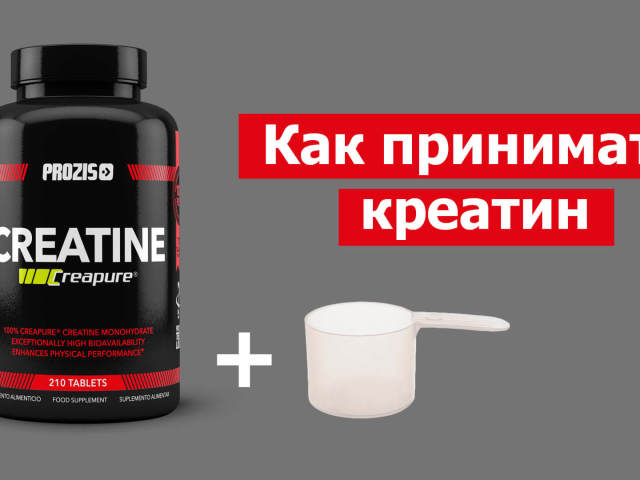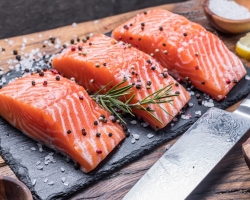Creatine or nitrogen -containing carbon acid is a sports supplement that is extracted from red meat. In small doses, it is produced in the human body and regulates the energy exchange of muscle tissue by delaying water in the muscles.
Content
- What is creatine in sports for?
- Creatine: Contraindications
- Types of creatine supplements for athletes
- Creatine: How to take?
- Basic creation schemes for creatine
- Reception of creatine during training days
- Reception of creatine during rest days
- Video: taking creatine, what will happen before and after?
Creatine helps to form new nervous bonds. Thus, creatine is a unique substance that can make life easier for athletes.
What is creatine in sports for?
- If creatine is used correctly, then the effect that occurs in the body will be similar to the action of animal steroids.
- Creatine has the same positive properties, but with a small amount it remains absolutely safe and does not have negative side effects.
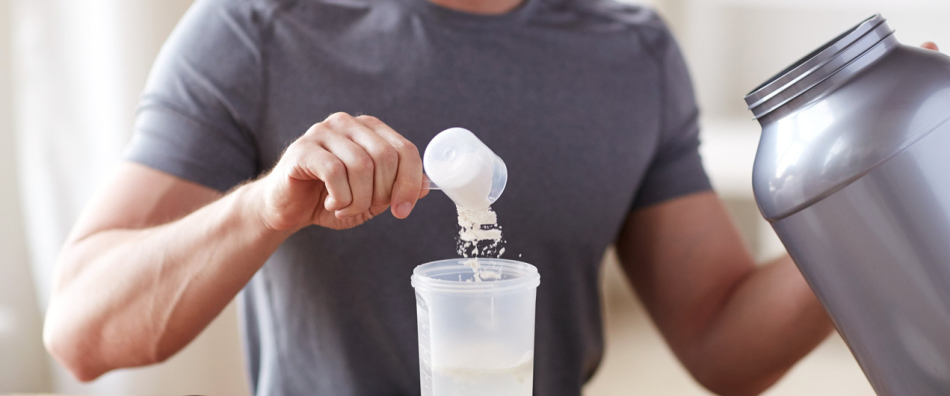
The main properties of creatine that help in sports:
- a surge of strength;
- increase in muscle mass:
- excretion of lactic acid from the body;
- losing weight and drying of the body;
- acceleration of nucleic acid production;
- increased growth hormone in the body;
- the ability to accelerate healing of wounds and cuts;
- continuing the process of destruction of muscle tissue.
The basic time of taking creatine up to 2 months, after which it is necessary to take a break for 3-4 weeks.
Creatine: Contraindications
- It is worth noting immediately that despite its positive qualities, creatine has contraindications.
- It cannot be taken too often and for a long time, as it has accumulative property And an overdose may happen.
- Excess Creatine In the body, it will give the opposite effect and will negatively affect bone and muscle tissue. After a while, they will weaken and exhausted, which will inevitably affect hematopoiesis.
- Another negative consequence of the long acceptance of creatine is the acquisition renal failure. This ailment may appear in the body due to the large load of the kidneys.
Types of creatine supplements for athletes
Today, at the shelves of sports nutrition stores, you can find products of creative additives of several forms:
- capsule (liquid);
- powder.
On sale it is also possible to see various soluble drinks, bars, sweets that contain a high amount of creatine. In which the form to take this food supplement depends exclusively on the taste. However, it is worth considering the moment that the action of creatine in capsule form begins a little faster.
Creatine: How to take?
In order to achieve the maximum result, during the use of creatine, you should adhere to several recommendations:
- Abandon coffee. A cup of coffee in itself during the day is very useful for the body of an adult, but not in the case of the use of creatine. The thing is that coffee has a slightly diuretic effect, and thereby is a negative factor during the adoption of this additive, as it will remove the necessary liquid.
- It is not recommended to eat grapefruit and eating in food black pepper. They have the effect of moisture removal, and the main task of creatine is to retain the liquid and gain muscle mass.
- Drink an increased amount of water.
- Adhere to the diet and taking creatine. It is advisable to immediately plan the most optimal mode for each day.
- Before using creatine to eat carbohydrates. This is a little trick that professional athletes use in their practice. After a person eats several grams of carbohydrates, he will increase insulin, which will help to absorb Creatin. This trick can much improve the expected result.
Basic creation schemes for creatine
From the point of view of medicine, there are 2 basic schemes for the use of creatine. The first is suitable for most people, and the second is designed for professional athletes and those who are actively involved in sports.
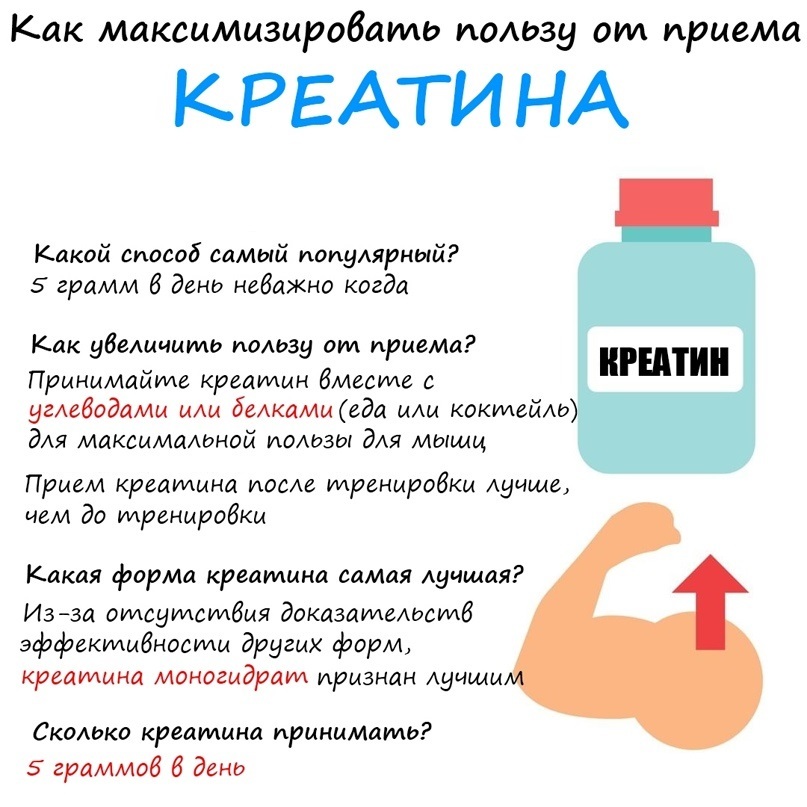
- Gradual load. The essence of this method is to use up to 5 g of creatine throughout the course throughout the course. This method will allow the body to get used to the gradual load, and at the end of the course the result will pleasantly please.
- Creatin load. This method is extreme and not entirely safe. It is built on consumption in the early days up to 20 g of creatine. This dose can be used for no more than 7 days, after which gradually reduced the amount until the end of the course. Basically, this method is used by professional athletes in order to achieve the result in the shortest possible time. It is worth noting that most often they achieve the goal to the detriment of their health, so ordinary people are recommended not to chase quick results and adhere to the first scheme.
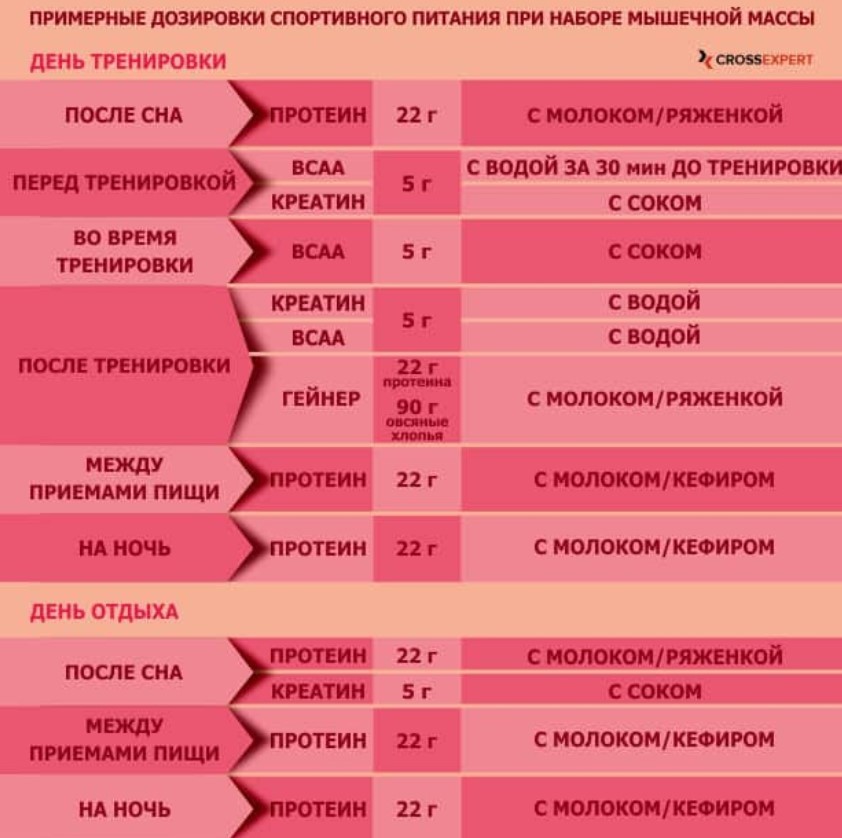
Reception of creatine during training days
There are several options for taking creatine in the days of great physical activity and training:
- long before training;
- during training;
- after workout;
- a while after training;
- divide into equal parts and take it during the day.

Which of them is the most optimal, scientists cannot definitely answer, even after many research. In this situation, it is necessary to focus on your sensations and the usual lifestyle.
Reception of creatine during rest days
- The use of creatine in the days when the body is in a relaxed state throughout the day does not play a special role. During this period, it is just as important to maintain a high level of creatine in the muscles, so you should adhere to general recommendations as on ordinary days.
- If possible, it is better to divide the daily dose of creatine into small portions and consume at each meal.
Despite their positive and relatively fast effect, many people think about whether it is worth including additional additives in their diet. It immediately comes to mind to supplement its nutrition with additional proteins and carbohydrates. However, experts assure that such an idea is unreasonable. An additional amount of food will contribute to a set of excess weight, and not an increase in creatine actions.
Creatine is considered a safe and natural addition, but even despite this, before its use it is necessary to consult a specialist.
Sports topics on the site:
- TOP-9 sports for children's development
- How to lose weight with hypothyroidism
- Rules for performing exercises for press
- How diet helps to form a sports figure and improve his health
- Sports nutrition for joints and ligaments

